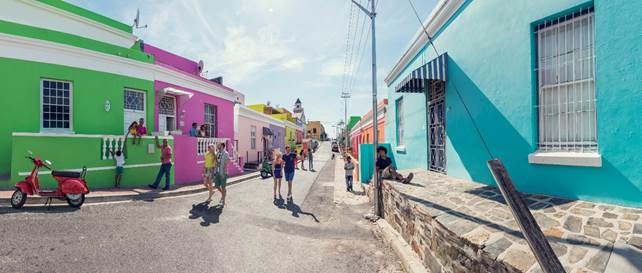On December 1, South African Tourism (SAT) and United Airlines welcomed back the return of its nonstop service between Newark Liberty International Airport (EWR) and Cape Town (CPT).
The resumed flight, which will operate three times weekly, complements United Airlines existing five times weekly service to Johannesburg.
The flight will be operated on a Boeing 787-9 Dreamliner aircraft featuring a total of 257 seats – 48 flat-bed seats in United Polaris® business class, 21 Premium Plus® and 188 in Economy, including 39 Economy Plus® seats with added legroom and increased personal space. Flights will depart Newark at 8:30 pm ET arriving in Cape Town at 6:00 pm local time the next day. Return flight leaves Cape Town at 8:50 pm and arrives in Newark at 5:50 am ET the next day.
“We look forward to welcoming back travelers in a safe and responsible way to experience beautiful Cape Town and beyond,” said Jerry Mpufane, President of South African Tourism, North America. “We thank our partners for their continued support of South Africa, re-establishing the link between these two destinations and setting top health protocols to ensure everyone, whether on leisure or business travel, has a wonderful and memorable journey.”
Travel Ban due to New Covid-19 Variant
In addition to the positive news about United Airlines resuming direct service to Cape Town, South African Tourism and the Tourism Business Council of South Africa (TBCSA) have also noted the latest reports on the new Covid-19 variant (now called Omicron), discovered by South African scientists, and the subsequent placing of South Africa on various countries’ red lists, effectively banning travel from South Africa to these countries. The announcement of the new variant by South African scientists has unfortunately had unintended consequences resulting in many countries closing their borders for travelers from the destination.
“The latest travel bans on South Africa are extremely disappointing and premature considering the limited information we have about this new variant. Whilst we cannot control the international market, we can control how we handle the crisis domestically, and will support the government to amplify vaccination opportunities and protect lives and livelihoods that depend on the tourism industry. Further restrictions will exacerbate an already devastated and ailing tourism industry and will negatively affect various other industries in South Africa,” said Tshifhiwa Tshivhengwa, CEO of the Tourism Business Council of South Africa.
“We would like to emphasize that our country remains open for all those travelers who wish to visit. We also encourage all South Africans to continue with their plans to go out there to explore and enjoy travelling within South Africa, while observing guidelines laid out by the national command centre from time to time.
The resilience of domestic tourism is key to the recovery of South Africa’s tourism sector and to the economy as this help avoid any further job losses,” adds South African Tourism, Acting Chief Executive Officer, Sthembiso Dlamini.
South Africa’s businesses have provided safe tourism products, venues and establishments by implementing and adhering to globally benchmarked health and safety protocols and norms and standards. The safety of South African residents and all visitors to the country remains of the utmost importance.
Cape Town Highlights
Cape Town (Bo-Kaap, Cape Town, pictured), affectionately known as the “Mother City,” is South Africa’s second-largest city and ranks among the most beautiful in the world. With its larger-than-life mountain overlooking the City Bowl, white beaches and Robben Island beyond, the destination is a tourists’ playground. Home to two World Heritage Sites, sprawling Winelands, nature reserves, botanic gardens and a buzzing waterfront there is a wealth of diversity throughout unlike any other destination in the world.
South Africa has been open for tourism since November 2020 with health and safety protocols in place including travelers requiring a negative Covid-19 PCR test 72 hours prior to arrival as well as visitors and locals alike wearing face masks in public.
South African Tourism, www.southafrica.net

